By Martin Petty
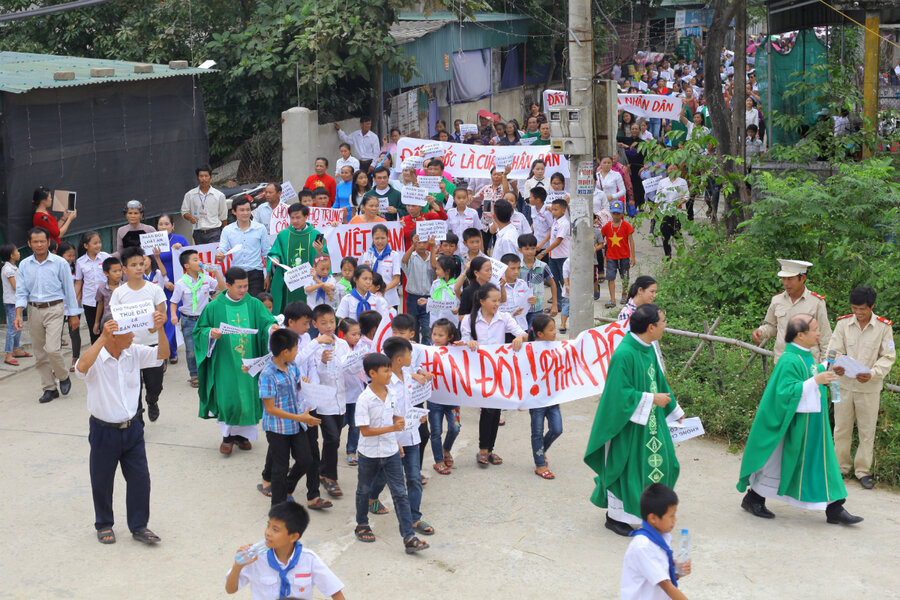
Protests by thousands of people in cities across Vietnam are showing just how easy it is to unite public opinion and mobilize dissent when an issue has one key ingredient: China.
The demonstrations, which are technically illegal, sprung up for a second consecutive week on Sunday, stoked by fears that proposed coastal economic zones for foreigners would be beachheads for an invasion of Chinese businesses.
The proposal makes no mention of China.

Protests by thousands of people in cities across Vietnam are showing just how easy it is to unite public opinion and mobilize dissent when an issue has one key ingredient: China.
The demonstrations, which are technically illegal, sprung up for a second consecutive week on Sunday, stoked by fears that proposed coastal economic zones for foreigners would be beachheads for an invasion of Chinese businesses.
The proposal makes no mention of China.
But Vietnamese minds were already made up, with popular Facebook posts reinforcing deep-rooted suspicion that Chinese interests are influencing state policy.
Central to the issue is a combustible mix of generations of anger over Chinese bullying, and a lack of faith in Vietnam's ruling communist party to do anything about it.
"The government underestimated the amount of anti-China sentiment in the country," said Murray Hiebert, a Southeast Asia specialist at the Center for Strategic and International Studies in Washington.
Central to the issue is a combustible mix of generations of anger over Chinese bullying, and a lack of faith in Vietnam's ruling communist party to do anything about it.
"The government underestimated the amount of anti-China sentiment in the country," said Murray Hiebert, a Southeast Asia specialist at the Center for Strategic and International Studies in Washington.
"There's a constant undertone among many in Vietnam that the government isn't doing enough to protect the country's sovereignty against China," Mr. Hiebert added.
Social media such as Facebook, used by half of Vietnam's 90 million people, makes such fervor easy to stoke and hard to contain.
After protests spanned cities nationwide, the National Assembly last week postponed its vote on the economic zones until October.
Security was tightened on Sunday to prevent protests in major cities, but thousands still gathered in central Ha Tinh province, many with signs saying "No leasing land to Chinese communists for even one day."
Tensions are likely to persist as long as China pushes its Belt and Road initiative to advance its overseas business, and takes stronger action to fortify its claims over almost the entire South China Sea.
China has been accelerating construction and militarisation in the Spratly and Paracel islands claimed by Vietnam, and in March pressured Hanoi to suspend some major offshore oil drilling for the second time in the space of a year.
The Vietnamese government's resistance to Chinese pressure has been very limited.
The communist party top brass rarely acknowledges anti-China sentiment even exists in Vietnam.
Social media such as Facebook, used by half of Vietnam's 90 million people, makes such fervor easy to stoke and hard to contain.
After protests spanned cities nationwide, the National Assembly last week postponed its vote on the economic zones until October.
Security was tightened on Sunday to prevent protests in major cities, but thousands still gathered in central Ha Tinh province, many with signs saying "No leasing land to Chinese communists for even one day."
Tensions are likely to persist as long as China pushes its Belt and Road initiative to advance its overseas business, and takes stronger action to fortify its claims over almost the entire South China Sea.
China has been accelerating construction and militarisation in the Spratly and Paracel islands claimed by Vietnam, and in March pressured Hanoi to suspend some major offshore oil drilling for the second time in the space of a year.
The Vietnamese government's resistance to Chinese pressure has been very limited.
The communist party top brass rarely acknowledges anti-China sentiment even exists in Vietnam.
On Friday, house speaker Nguyen Thi Kim Ngan skirted the issue, saying the legislature "appreciates the people's patriotism and their profound concerns about important issues."
Party chief Nguyen Phu Trong weighed in on Sunday to reassure the public about the economic zones, which have 99-year leases, but also made no specific mention of China.
The June 10 protests were in large part peaceful, but turned violent in central Binh Thuan province, where vehicles were set ablaze and angry mobs hurled rocks and charged at riot police.
Tran Vu Hai, a prominent lawyer, said the anger had been festering for years in Binh Thuan, where China is blamed for assaulting fishermen, polluting the land with a Chinese-built power plant, and for deforestation to mine minerals exported primarily to China.
Hai said people were venting fury not only at China, but at a local government, which is perceived as being corrupt and enslaved by destructive Chinese commercial interests.
"They don't investigate why people are irritated and they don't solve the people's problems," he said. "The trust in the authority in that area has already been lost."
The turnout and coordination of protests is now emboldening ordinary Vietnamese, but also complicating the party's difficult balancing act of tolerating some dissent while keeping it under control.
That risks angering a vital trade partner that can hold Vietnam's economy hostage.
The protests are being taken seriously by China; its diplomatic missions in Vietnam held meetings last week with Chinese business groups, local government and local media.
In one of several postings on the embassy's website, it said charge d'affaires Yin Haihong "demanded" that Vietnamese authorities protect Chinese businesses and citizens.
Ms. Yin said the embassy had been informed by the Vietnamese authorities that people with "ulterior motives" had "deliberately misrepresented the situation and linked it to China."
The recent rallies follow similar protests in 2014 after China's deployment of an oil rig off central Vietnam, and months of demonstrations in 2016 over an environmental disaster at a steel plant run by Taiwan's Formosa Plastics.
Responding to questions from Reuters, Vietnam foreign ministry spokeswoman Le Thi Thu Hang made no mention of China but said "extremists" had "incited illegal gatherings."
Party chief Nguyen Phu Trong weighed in on Sunday to reassure the public about the economic zones, which have 99-year leases, but also made no specific mention of China.
The June 10 protests were in large part peaceful, but turned violent in central Binh Thuan province, where vehicles were set ablaze and angry mobs hurled rocks and charged at riot police.
Tran Vu Hai, a prominent lawyer, said the anger had been festering for years in Binh Thuan, where China is blamed for assaulting fishermen, polluting the land with a Chinese-built power plant, and for deforestation to mine minerals exported primarily to China.
Hai said people were venting fury not only at China, but at a local government, which is perceived as being corrupt and enslaved by destructive Chinese commercial interests.
"They don't investigate why people are irritated and they don't solve the people's problems," he said. "The trust in the authority in that area has already been lost."
The turnout and coordination of protests is now emboldening ordinary Vietnamese, but also complicating the party's difficult balancing act of tolerating some dissent while keeping it under control.
That risks angering a vital trade partner that can hold Vietnam's economy hostage.
The protests are being taken seriously by China; its diplomatic missions in Vietnam held meetings last week with Chinese business groups, local government and local media.
In one of several postings on the embassy's website, it said charge d'affaires Yin Haihong "demanded" that Vietnamese authorities protect Chinese businesses and citizens.
Ms. Yin said the embassy had been informed by the Vietnamese authorities that people with "ulterior motives" had "deliberately misrepresented the situation and linked it to China."
The recent rallies follow similar protests in 2014 after China's deployment of an oil rig off central Vietnam, and months of demonstrations in 2016 over an environmental disaster at a steel plant run by Taiwan's Formosa Plastics.
Responding to questions from Reuters, Vietnam foreign ministry spokeswoman Le Thi Thu Hang made no mention of China but said "extremists" had "incited illegal gatherings."
Lawmakers say it is time to revisit a long-delayed law to regulate demonstrations.
The constitution allows freedom of assembly, but protests are often broken up by police and participants held for "causing public disorder."
Others say it's time to listen more to public opinion.







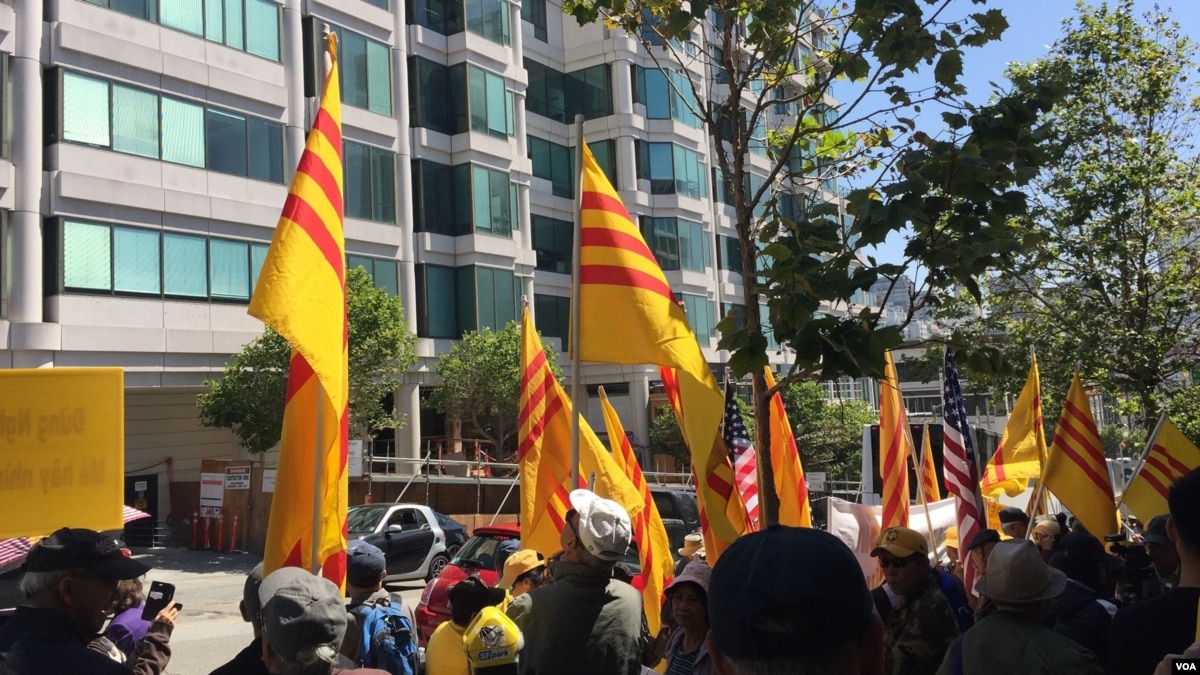
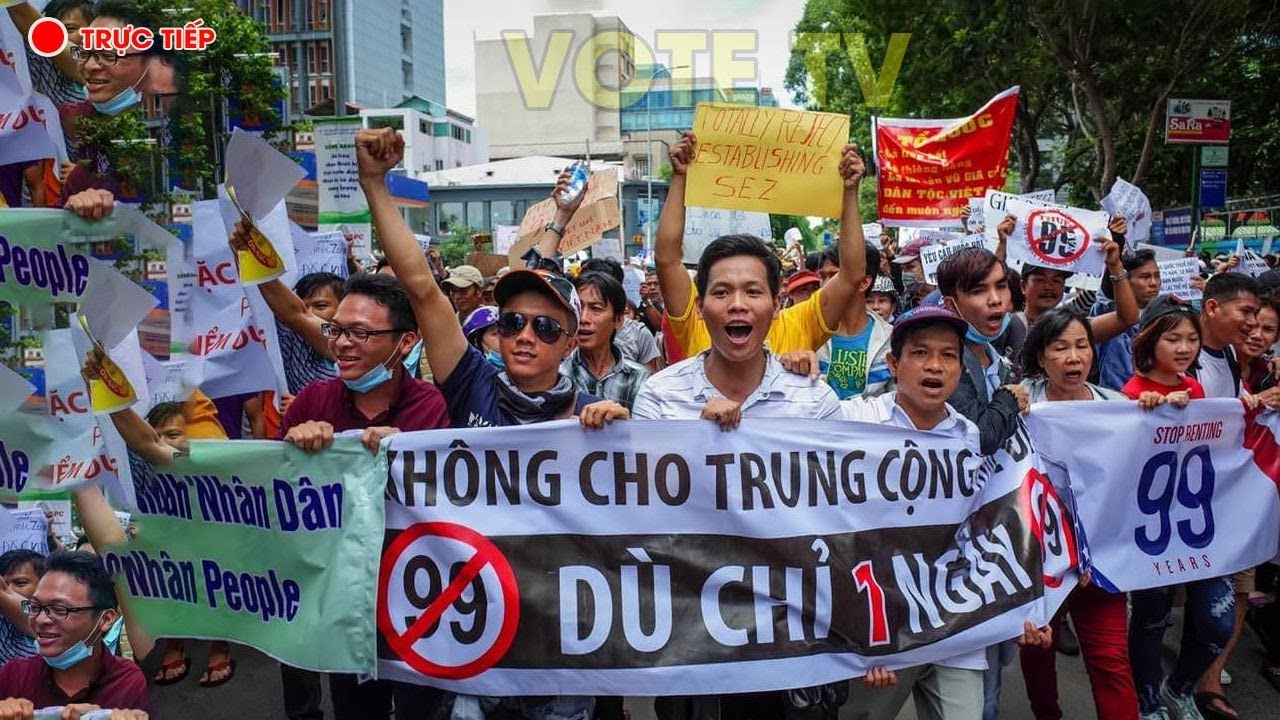

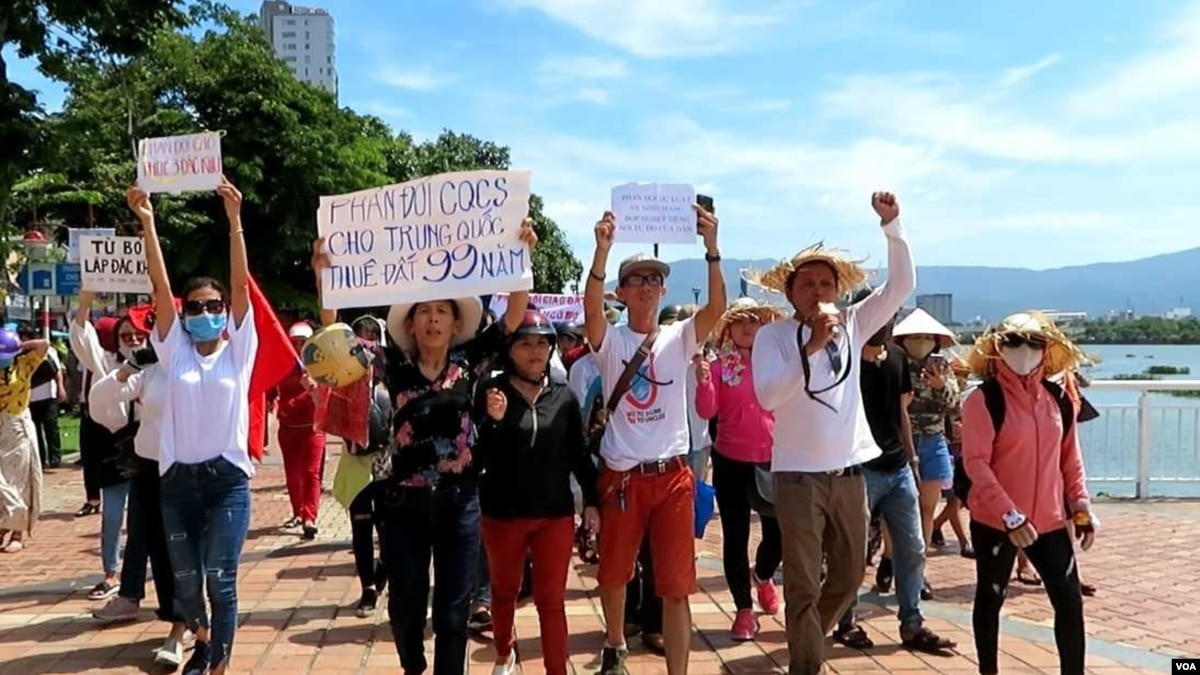


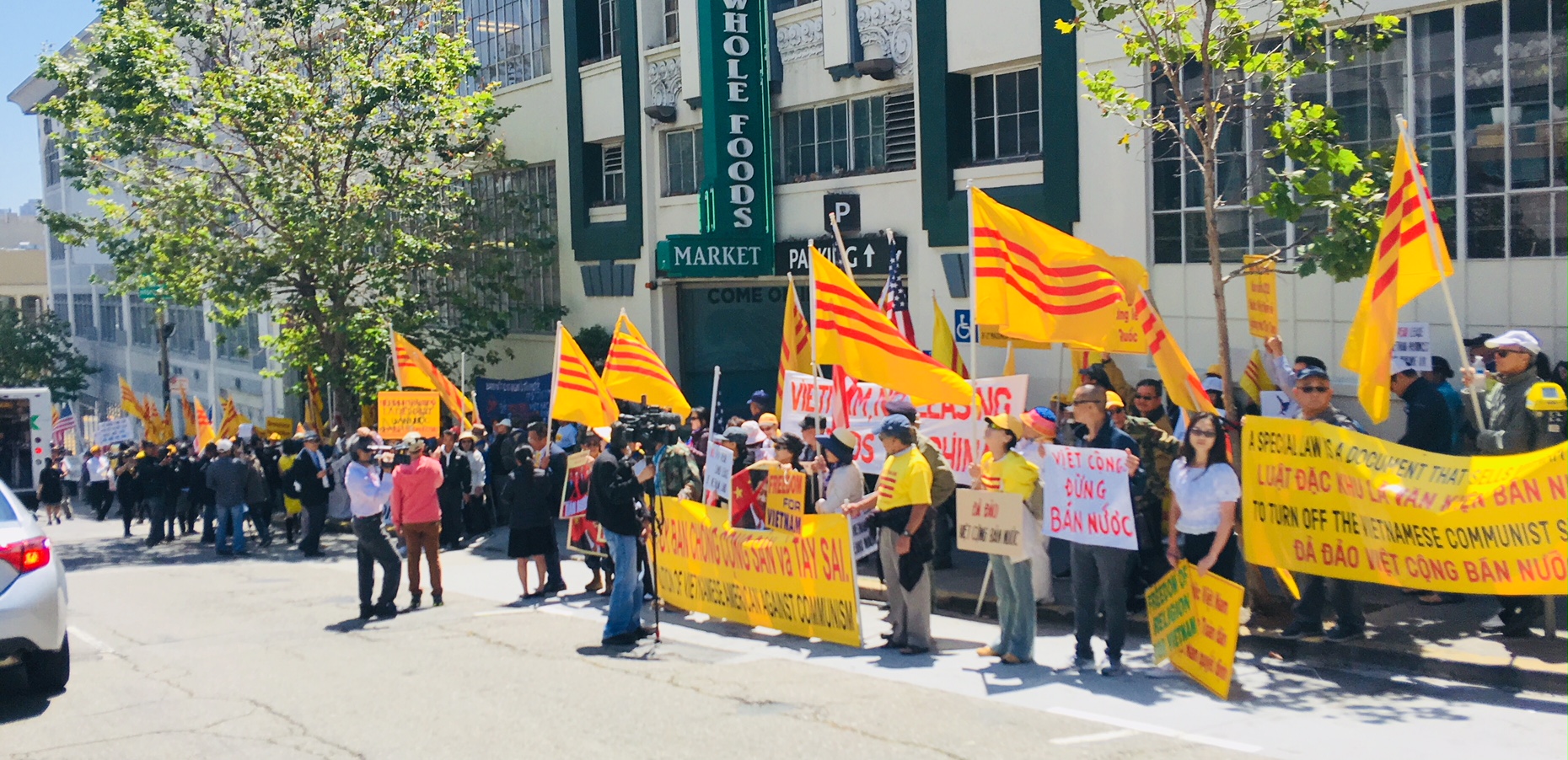
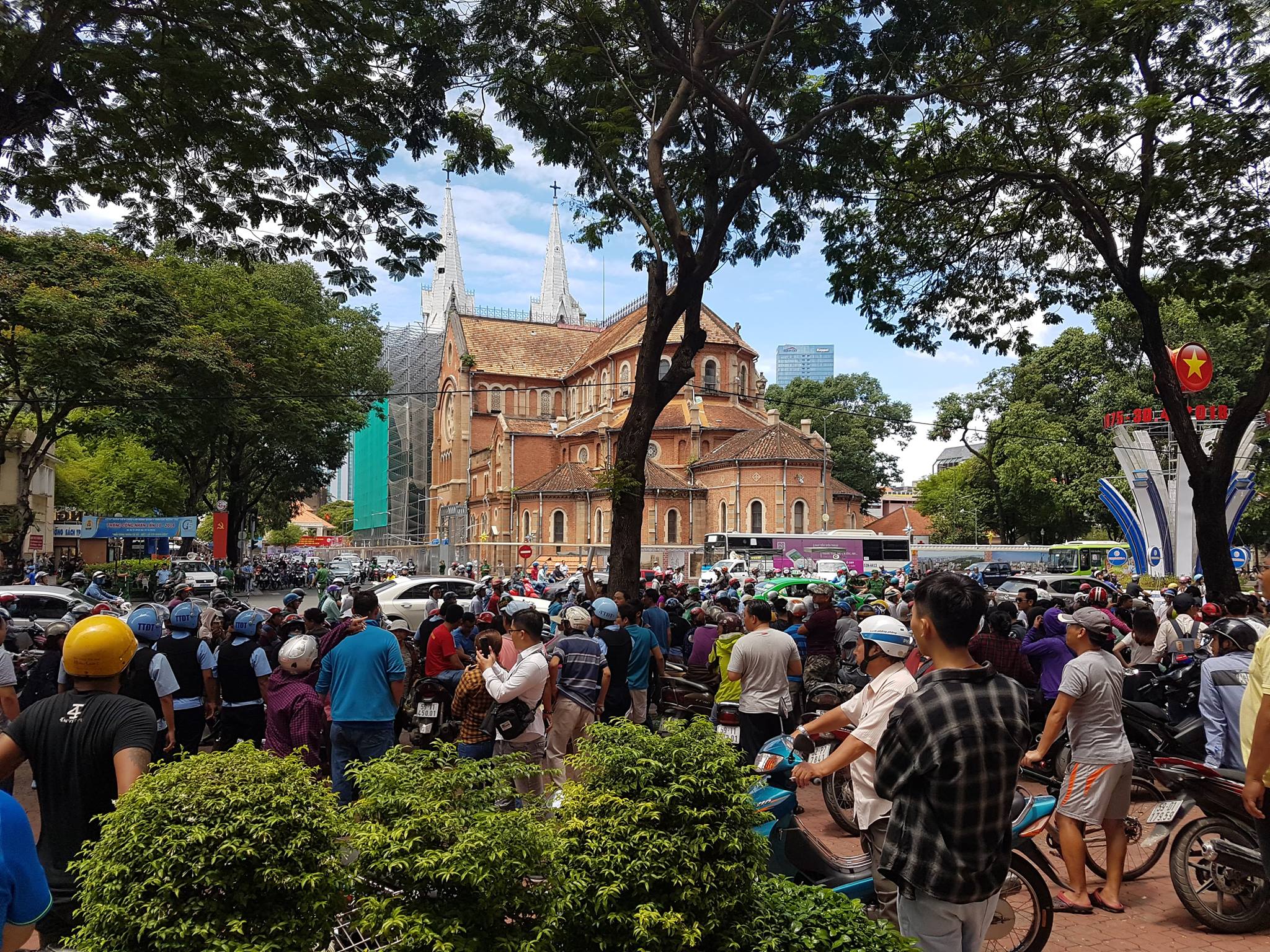

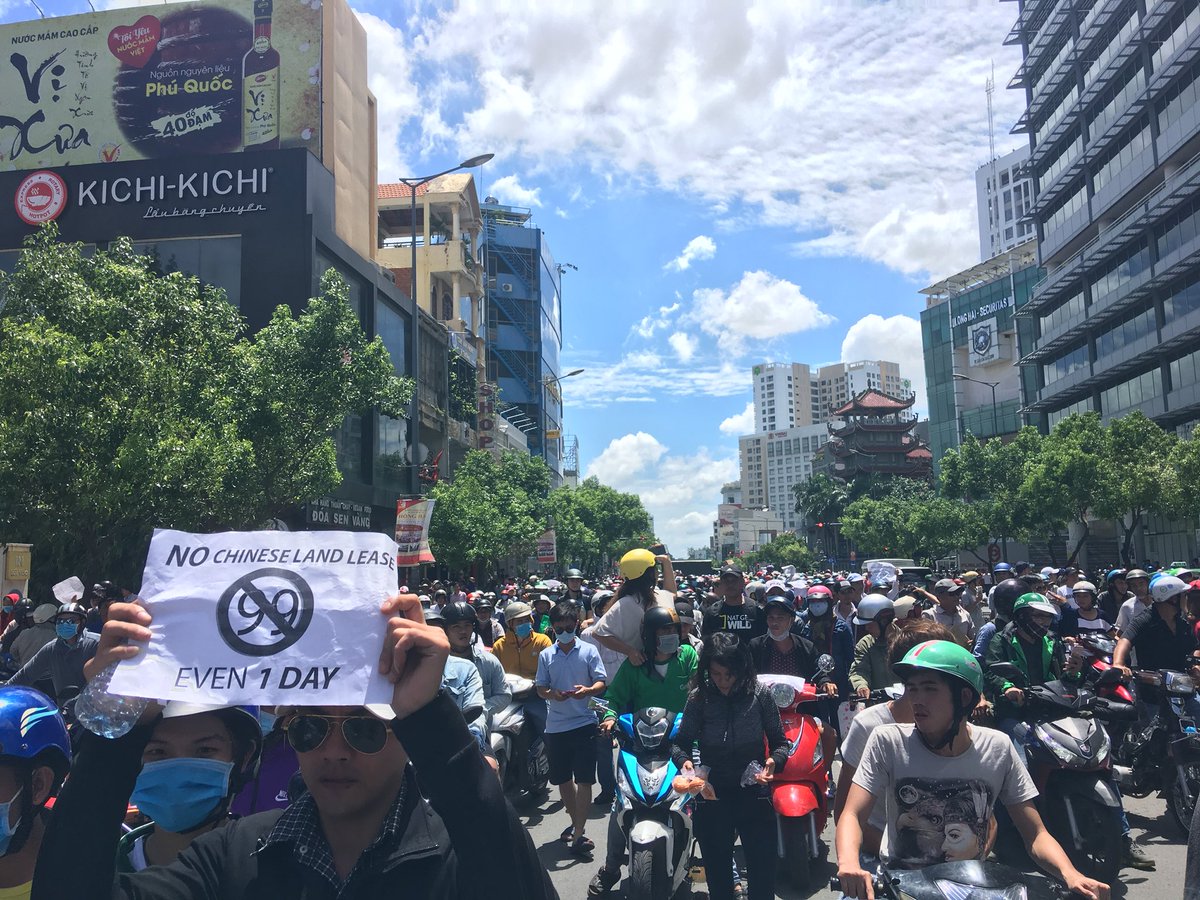
 Protesters in Saigon, Vietnam, on Sunday held banners denouncing a proposal to create special economic zones favorable to China.
Protesters in Saigon, Vietnam, on Sunday held banners denouncing a proposal to create special economic zones favorable to China. Will Nguyen, 32, of Houston, has been studying at the University of Singapore.
Will Nguyen, 32, of Houston, has been studying at the University of Singapore.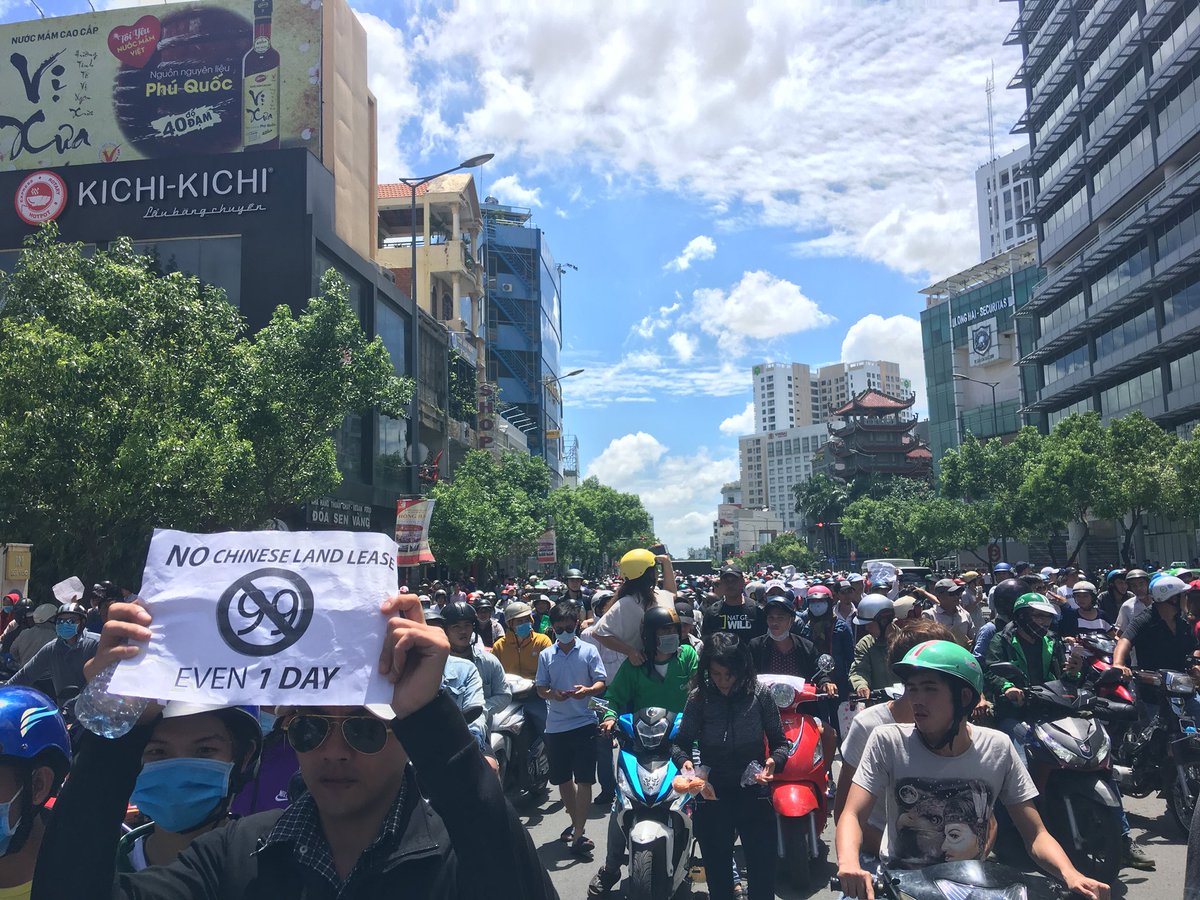
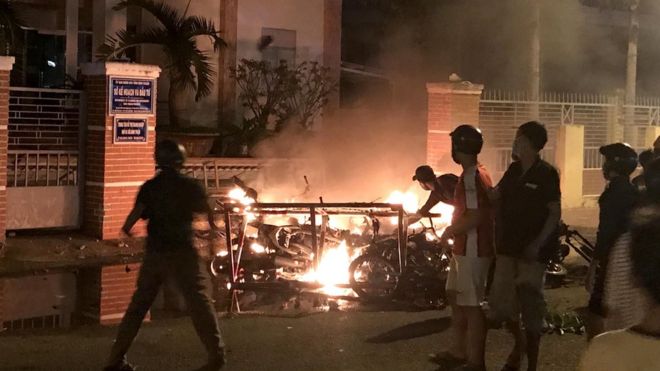 Protests turned violent in Binh Thuan province -- where more than 100 people were detained
Protests turned violent in Binh Thuan province -- where more than 100 people were detained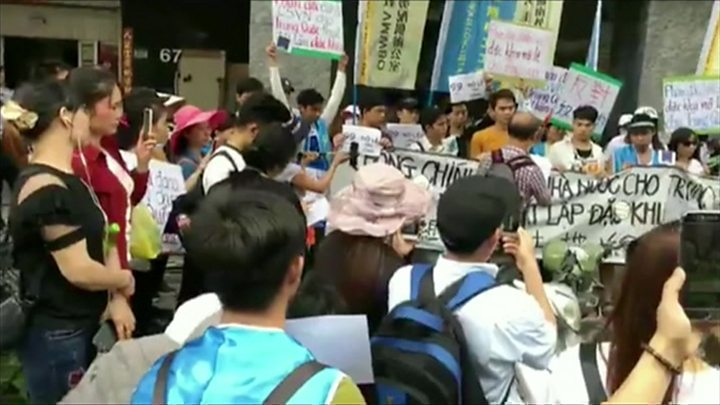
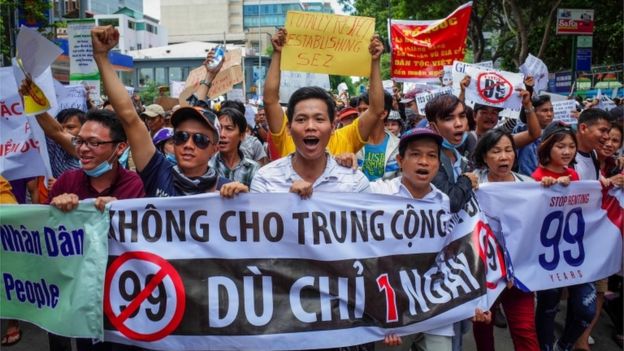 Protesters like those who marched in Saigon have said they will demonstrate again
Protesters like those who marched in Saigon have said they will demonstrate again